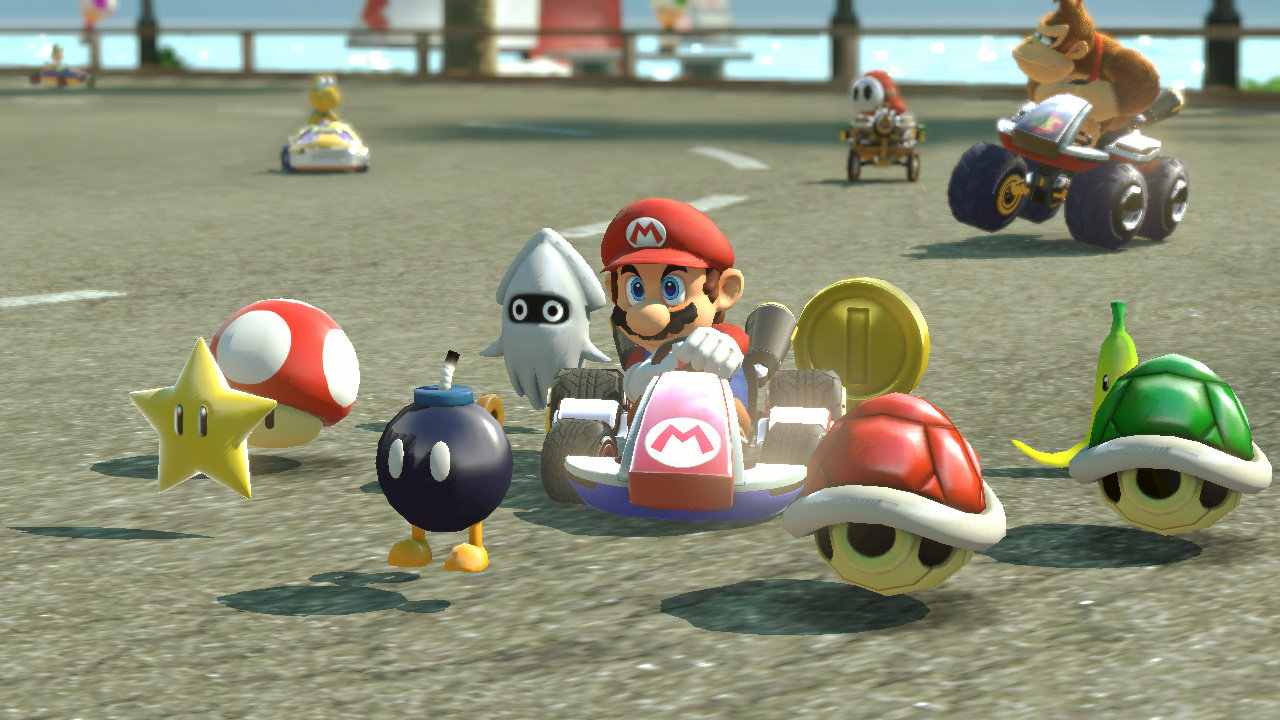Features
Symphonies of the Night: The Sounds of ‘Mario Kart 8’
‘Symphonies Of The Night is a column in which we look back at the most memorable soundtracks in the history of gaming, and try to determine exactly what made these compositions as memorable and esteemed as they are today.’
****
When it comes to video game soundtracks, the formula has remained relatively unchanged throughout the years. In the early years, when technology was limited and video game music was lacking in opportunities, the scene was dominated by synthesized 8-bit soundtracks, not because it was what we sought after in a game, but because it was all we had available.
This was the case until the introduction of the fifth-generation video game consoles, a generation that ushered in an elevated form of video game music. The overall sound had transitioned from the usual, somewhat stale chiptune stylings into a more advanced form of MIDI-driven music. The samples were more varied and brought a whole new sense of depth to the soundtracks of the games. Game developers could now pride themselves on soundtracks that were more driven, more immersive than any soundtrack of the past.
The problem with this synthesized MIDI-oriented approach was the authenticity of it all. While it was indeed a huge improvement over the earliest forms of video game soundtracks, it could only emulate the authentic sound of musicians in a studio performing the tunes on actual instruments. This MIDI trend has been in effect ever since the introduction of the fifth-generation of consoles, and while some games have been dabbling in live music and orchestral scores, very few games have managed to fully replicate the authenticity of the real deal.
However, one game has managed to rise above and make the soundtrack feel like real music, performed by real musicians, on real instruments. This game is Mario Kart 8, the latest installation of the Mario Kart series.
As you boot up the game, the first thing you hear is a voiced greeting from one of the characters in the game, immediately followed by an ensemble of brass instruments playing a few notes reminiscent of a fanfare, but in the pentatonic scale, making it feel like true Mario Kart music – it’s grandiose and ceremonious, but still reflects the fun and wondrous side of the gameplay through the pentatonic orientation of the music. While the composition is not an utterly unique one, the fact that it’s so authentic makes it stand out all the way from the very first notes.
Authenticity aside for a moment, another aspect of this soundtrack that makes it a truly great one is how clearly it draws on the personal influences of the composers and the musicians involved in the creative process. In the very first section of the main theme, there’s a short solo piece for electric bass. It’s rapid in tempo, and highly intricate in terms of technique and sound, mirroring the styles of the most influential funk bassists in history, such as Mark King, Victor Wooten, and Bootsy Collins.
In fact, the whole soundtrack is ripe with this phenomenon. The main theme mirrors the virtuosic nature of 70’s/80’s funk, complete with slap bass and brass fills. Some tunes, like the ‘Moo Moo Farm’ theme, draws on the same sense of virtuosity, through an intricate fiddle melody. At the same time, it’s integrating this into a different genre, having the tune mirror country/bluegrass standards while blending with the tonality of an adventurous sensation. In Mario Kart 8, it doesn’t matter if the song is composed for the game or merely an adaption of an existing tune, the process never fails to infuse the piece with authenticity and life.
Mario Kart 8 may very well have ushered in the start of a new era for video game music. Starting now, we might be bound to see a dramatic increase of authenticity in video game soundtracks – studio musicians being hired to feature in all sorts of video games, playing music that’s being composed to add depth to the game itself by drawing on the inspirations and influences of the creator, improving not only the soundtracks of games, but also making it slightly easier to make a living as a musician or a composer, adding video games to the list of missions to undertake.

-

 Features4 weeks ago
Features4 weeks agoFarewell to a Beloved 13-Year-Old Isekai Anime That Brought Us Endless Laughter
-

 Technology3 weeks ago
Technology3 weeks agoGamification and Productivity: What Games Can Teach SaaS Tools
-

 Features3 weeks ago
Features3 weeks agoThis Upcoming Romance Anime Might Just Break the Internet; Trailer Just Dropped!
-

 Features2 weeks ago
Features2 weeks agoDon’t Watch These 5 Fantasy Anime… Unless You Want to Be Obsessed
-

 Culture4 weeks ago
Culture4 weeks agoIs the Gaming Industry Killing Gaming Parties?
-

 Features4 weeks ago
Features4 weeks agoWait, What?! Tom & Jerry Just Turned Into an Anime and It’s Glorious!
-

 Features1 week ago
Features1 week ago“Even if it’s used a little, it’s fine”: Demon Slayer Star Shrugs Off AI Threat
-

 Game Reviews4 weeks ago
Game Reviews4 weeks agoCall of Duty and the Myth of Military Realism: Tactical or Just Tacticool?
-

 Guides4 weeks ago
Guides4 weeks agoHow to Earn and Spend Diamonds in Mobile Legends
-

 Technology4 weeks ago
Technology4 weeks agoDigital Cash: For Gamers Who Don’t Ask Permission?
-

 Technology4 weeks ago
Technology4 weeks agoDiscover the Top PDF Drive Tool Today
-

 Game Reviews2 weeks ago
Game Reviews2 weeks agoHow Overcooked! 2 Made Ruining Friendships Fun
























